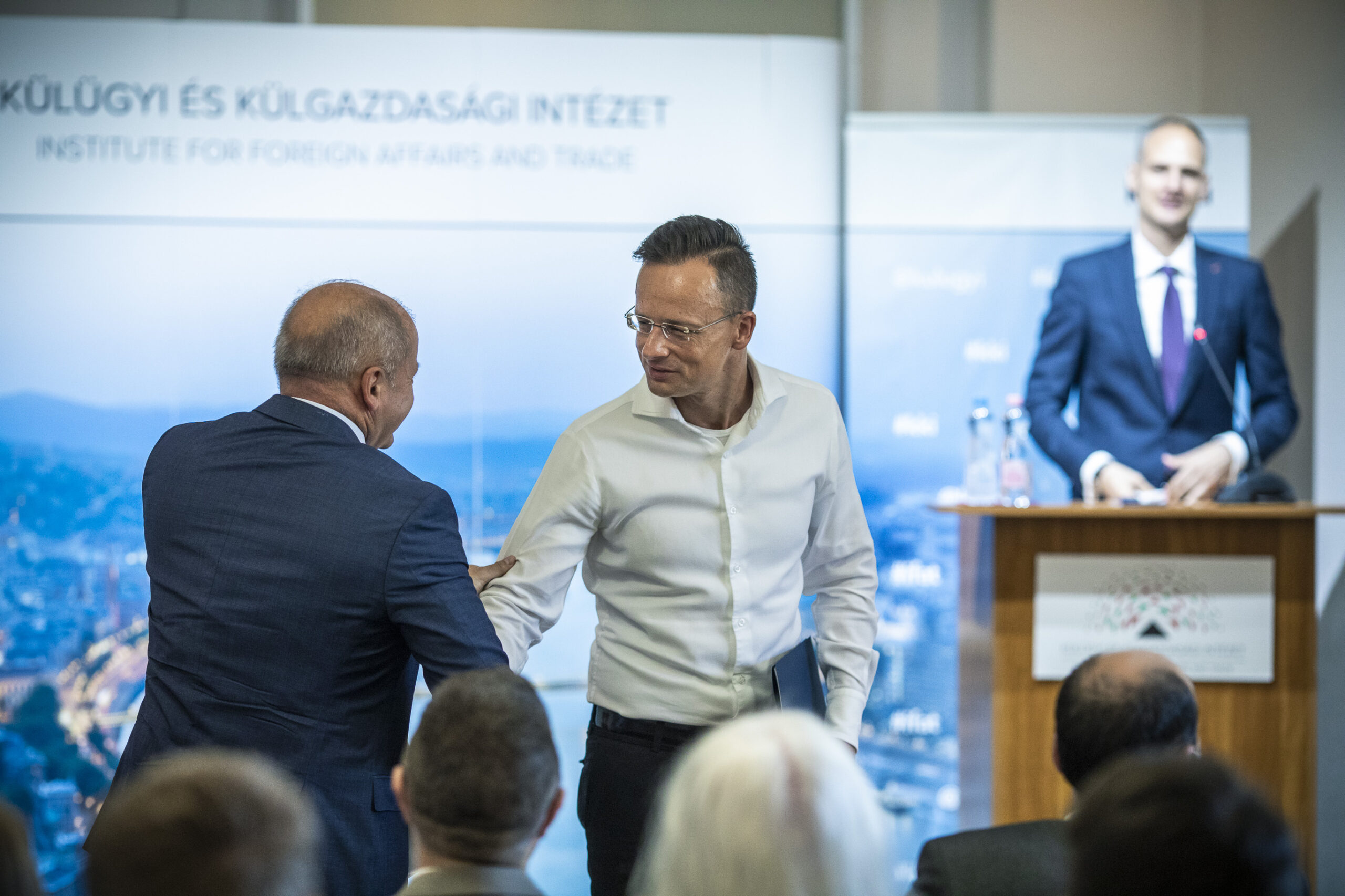The Institute for Foreign Affairs and Trade (IFAT) organised an offline conference on “The Impact of the Withdrawal from Afghanistan on Migration” on 25 June, 2021. Márton Ugrósdy, Director of IFAT, welcomed the speakers to the event, commemorating the Hungarian mission in the context of the US withdrawal from Afghanistan.
In his opening speech, Péter Szijjártó, Minister of Foreign Affairs and Trade underlined that migration has been a major challenge for Hungary since 2015 from a political, security, economic and health perspective. Afghanistan is one of the main sources of foreign migration as, between the beginning of NATO operations and 2020, some three million people left the country. With the end of NATO’s mission, Afghanistan will be left on its own and its stability will be in question, possibly leading to a significant wave of emigration. Hungary’s migration strategy has four pillars. The first line of defence is the sub-Saharan (Mali) and Afghan. The second is the Mediterranean and Turkey, the third is Northern Macedonia and Serbia and the last is the border with Hungary. The aim is for Hungary to defend the first line of defence and to contribute to the stability of the region with concrete military actions. The NATO summit in June reflected the recognition by most European countries that NATO’s withdrawal creates a situation for which Europe must be prepared.
Following the opening presentation, the discussion was moderated by Dr Tamás Péter Baranyi, Deputy Director for Strategy of IFAT. First, Dr György Bakondi, Interior Security High Advisor of Prime Minister, presented data showing that the Spanish and Italian migration routes will experience a significant increase in numbers in 2021 compared to the previous year. The only reason for this is not the case in the Greek route, that the country’s government is applying a strict migration policy. The increase in migratory pressure can also be identified by the number of illegal immigrants apprehended at the Hungarian border. He pointed out that there is a dynamic increase in migrants from Afghanistan, which is sure to increase with the end of the NATO mission.
Dr István Simicskó, Member of the National Assembly and the former Minister of Defence assessed the Hungarian role in the conflict, noting that it is difficult to take an accurate balance. On the one hand, the Hungarian mission stuck to its main principle of “going in and going out together” with its allies. Secondly, the Hungarian mission played a significant role in strengthening the Afgan state. The Hungarian mission did a lot to convince the local people that they were not invaders, but that they were providing help. This gained the Hungarian soldiers’ recognition within NATO and respect in Afghanistan too. Despite all this, the success of the NATO operation is questionable in terms of its ability to make Afghanistan stand on its own feet. Unfortunately, the outlook in this respect is not favourable. Agreeing with Dr György Bakondi, he stressed that the US decision will certainly have an impact on Europe.
Dr Péter Wagner, the Senior Research Fellow of IFAT and Assistant Professor of the Károli Gáspár University of the Reformed Church, underlined the NATO alliance had essentially failed. It has failed to establish a Western-style democracy and since 2009 there has been an ongoing political crisis that could only be stabilised by US pressure. He thinks that a new perception is needed, whereby a deal should be offered by Western countries to the Taliban. In return for international recognition of the Taliban, he would demand a halt to terrorist actions, an end to drug production and restrictions on migration. This is not an abstract possibility, but a realistic recognition of the situation. With Taliban-held territory growing, US estimates also give the government just 6-8 months to keep the power. The solution for Europe would be to increase stability. Afghanistan is unable to protect its borders, without which migration seems unstoppable.
Photos by:
Ministry of Foreign Affairs and Trade//Külgazdasági és Külügyminisztérium (KKM)
Institute for Foreign Affairs and Trade (IFAT)//Külügyi és Külgazdasági Intézet (KKI)

